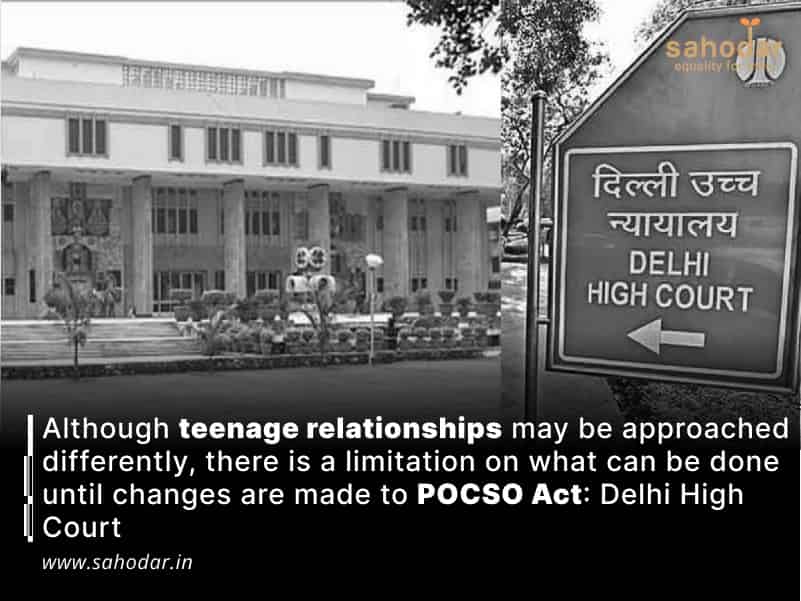The Delhi High Court has stated that it is unable to deviate from the charges under the POCSO Act against a man, despite the victim confessing in her statement under section 164 of the Cr.P.C. that she was in relationship with him. The court expressed that it would be preferable to handle cases involving teenage relationships differently. However, until the law is amended, the court’s hands are tied when it comes to framing charges. Justice Swarana Kanta Sharma explained that any changes to the law would need to be made by the country’s Parliament.
The Delhi Police filed a plea in court to challenge a decision made by the trial court to discharge the accused of charges under sections 363 and 376 of IPC and section 4 of the POCSO Act. The case began with an FIR registered under section 363 of IPC in 2017 when the victim, a 14-year-old girl, was reported missing by her father. However, the victim herself went to the police station and informed the investigating officer that she had developed a fondness for the accused and had gone with him on the pretense of visiting her relative’s house. They had stayed in a friend’s house and planned to get married.
During the investigation, the victim provided a statement under section 164 of Cr.P.C. where she stated that she had voluntarily accompanied the accused on multiple occasions and that their relationship was consensual. However, the prosecution argued that the trial court failed to acknowledge that the victim was only 14 years old at the time of the incident and that her medical examination report indicated that her hymen was recently torn. The prosecution also claimed that the trial court did not consider that a minor’s consent holds no weight and gave undue importance to the victim’s statement recorded under section 164 of Cr.P.C.
The accused’s representative argued that the trial court had provided sufficient justification for their discharge. However, when deciding on the charges to be framed against the accused, Justice Sharma pointed out that the POCSO Act specifies that the age of consent for sexual relationships is 18 years old. Additionally, section 375 of the IPC indicates that having sexual intercourse with a minor girl under the age of 18 is considered rape, even if the minor gives their consent.
Despite the victim exonerating the accused from all allegations, the court recognized that the evidence presented by the prosecution established that the victim was 14 and a half years old at the time of the incident.
As a child within the meaning of Section 2(d) of the POCSO Act, the victim’s consent regarding the physical relationship holds no value and cannot aid the accused. Although the victim consented to sexual intercourse with the accused, because she was under the age of 18, the acts would fall under the POCSO Act and Section 375 of IPC.
The court determined that the accused could not be charged under section 363 of IPC as there was no evidence or allegation that he had enticed, allured, or induced the victim to leave her home or had taken her out of her lawful guardianship. The court allowed the petition to the extent that charges should be framed against the accused for offences punishable under Section 376 of IPC and Section 4 of POCSO Act.
Nevertheless, the court stated that its observations were solely for the purpose of deciding the matter and should not affect the trial court’s judgment.
Source: https://www.livelaw.in/news-updates/delhi-high-court-pocso-act-teenage-relationships-consent-law-amendment-required-223420

